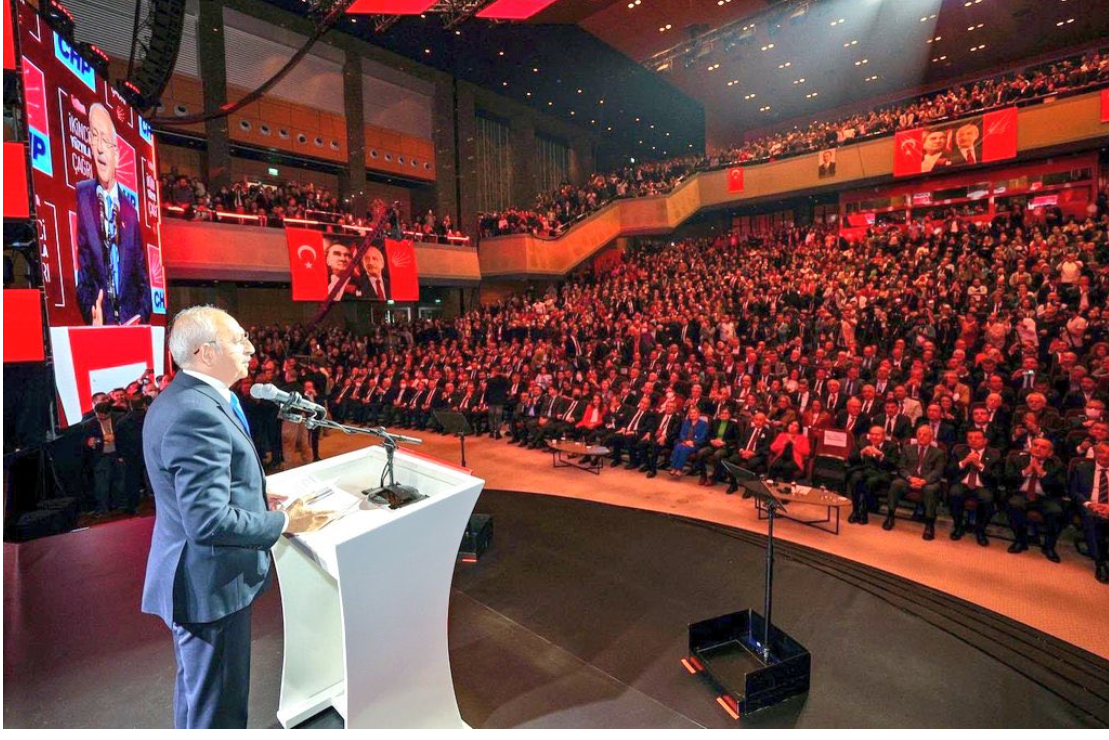Reviving Turkey’s struggling economy is top of the agenda for opposition candidates keen to unseat President Recep Tayyip Erdogan in pivotal elections in May.
Top economic officials from the six parties that have formed an opposition alliance told Nikkei Asia on the sidelines of a weeklong congress in mid-March that if they win elections for the presidency and parliament on May 14, they will carry out a massive overhaul of the bureaucracy, as well as legal and regulatory changes, to undo Erdogan’s damaging legacy.
Erdogan has ruled for more than two decades and the country is now facing the deepest cost-of-living crisis under his watch. Economic challenges have been compounded by the earthquakes that killed more than 50,000 people in Turkey in February, with the government now facing an estimated $100 billion in re-construction costs.
Whoever wins the elections in May will face the daunting task of rebuilding from that disaster amid sky-high inflation, which stood at 55% in February after peaking at 85% last October. Turkey’s central bank held the policy rate at 8.5% on Thursday.
Also, the winner will take on ballooning fiscal debt caused by misguided policies, such as increasing foreign exchange-denominated borrowing in recent years, compounded by the fast depreciation of the lira, according to economist Ugur Gurses.
“We will be inheriting the wreckage of the century,” said Bilge Yilmaz, 55, head of the economic policy of Iyi Party, which is the second largest member of the main opposition bloc.
Yilmaz holds a doctorate in economics from Princeton University and is a long-serving professor at the University of Pennsylvania’s Wharton School. Analysts consider him a strong contender to become Turkey’s next economy czar, should the party perform well in the parliamentary elections.
“We pledge to return to reasonable, scientific monetary policy, securing budget discipline. We need to craft an economic policy based on data again,” Yilmaz said.
According to Ozer Sencar, head of the polling company Metropoll, Kemal Kilicdaroglu, the joint candidate of the Nation Alliance, was 2.6 percentage points ahead of Erdogan in a poll conducted in March. Sencar said he expects a tight race between the candidates. If no candidate wins a majority, a runoff election will take place on May 28.
Yilmaz said that the next administration would secure independence of the central bank with legal amendments. That, combined with sound fiscal policy, can push inflation down to single digits within two years.
“We will execute a full-fledged inflation-targeting policy,” said Yilmaz, suggesting that he would establish an independent central bank to set three-month inflation targets and determine appropriate interest rates to steer the economy toward such goals, rather than giving only year-end targets.
Yilmaz argued that a victory by Erdogan and a continuation of his policies would lead Turkey to a balance-of-payments crisis.
Erdogan posits an unorthodox economic theory that high interest rates cause high inflation and has pressured the central bank to cut policy rates. His stance is not shared by mainstream economists, and he had sacked central bank governors and monetary policy committee members one after another to further his agenda. He claims low interest rates will boost corporate borrowing to fund increased production and exports, helping to reach a current account surplus that will stabilize the lira.
He acknowledges the hardships caused by high inflation but blames rising prices on soaring energy costs due to the war in Ukraine and has accused business owners within the country of hiking prices to take advantage of the crisis.
May’s elections could herald changes throughout the top ranks of the bureaucracy if Erdogan loses. Under the presidential system Erdogan introduced in 2018, hundreds of high-level bureaucratic posts, from central bank governor to head of the statistics institute, will become vacant in that scenario.
The opposition has decried this system for concentrating excessive power in the presidency. Yilmaz pledges that, if victorious, his alliance will institute sweeping changes across the central bank, treasury, capital markets board, and the banking regulatory and supervisory agency.
Yet, Yilmaz has concerns that the next government could face a bumpy start. According to him, there is “incredible pent-up demand for dollars” and “bureaucrats will not be willing to carry out government directives anymore. Suddenly this regime of pressure will disappear,” he said, referring to back-door foreign exchange sales of central bank reserves to buy the lira via state banks to stabilize the value of the local currency, as well as other verbal and regulatory interventions by the state into foreign-exchange markets.
asia.nikkei.com
